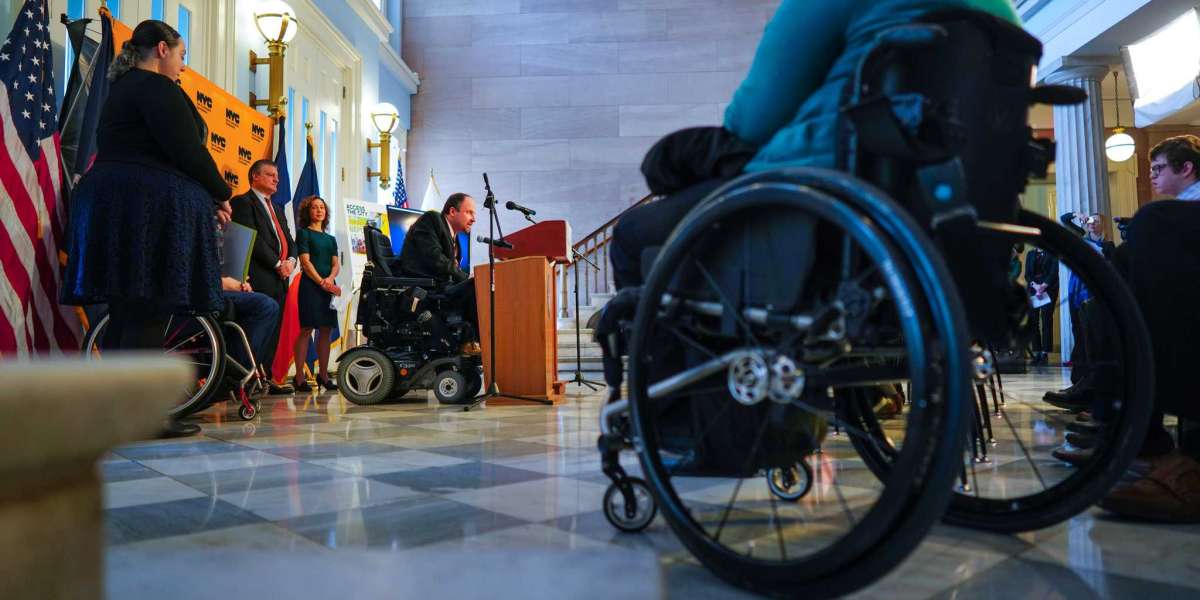Many wheelchair users and people with disabilities have said they experience regular discrimination from ride-hailing services. Lyft does not provide services to people who use wheelchairs and motorized scooters. Several class-action lawsuits have been filed insisting on equal access for people with disabilities. The lawsuits assert that the company does not offer the same on-demand rides for people with disabilities as they do for their other customers. Advocates have been pressing on this front for years and it's the fight goes on.
People with Disabilities Demand Access
Harriet Lowell is a wife, a sister, and an advocate. Unfortunately, Harriet, along with over 2.5 million Americans, faces travel barriers because she uses a motorized scooter. To use Para transit, for example, one must meet eligibility requirements and complete an application process. Once accepted, Para transit is often unreliable and cannot be called at a moment's notice. Harriet's husband, Neil, gives Harriet a ride when he is able. When Neil was in the hospital for surgery, Harriet could not visit him because she had no way to travel to the hospital on her own. Instead, she was stuck at home and left frustrated that there were so few transportation options available to people with disabilities.
In a more just world, Harriet would have been able to visit her husband, like any spouse wants to do when their partner is in need. This predicament isn't just about Harriet—millions of people with disabilities are denied access to transportation because Lyft's refuses service to people who use motorized scooters or non- foldable wheelchairs.
Harriet and the advocacy organization Westchester Disabled On The Move are now advocating against this injustice by leading a nationwide class action lawsuit against Lyft (Lyft fights to avoid Americans with Disabilities Act in federal court (politico.com). If the plaintiffs succeed, Lyft will have to serve people who use wheelchairs across the country. Harriet has a strong case, and the Judge called one of Lyft's arguments to dismiss her case "supremely unjust." But Harriet needs your help. She needs to gather declarations to support her case. She will testify that there are many people like her all around the nation who just need a ride, which Lyft is supposed to provide under the Americans with Disabilities Act.
The suit against Lyft asserts the company has done almost nothing to serve people who use wheelchairs. Even in the few areas where Lyft claims to provide wheelchair-accessible service, using its "access feature" only provides links and useless information—not actual accessible service.
“The transportation industry is innovating and progressing, but people with disabilities can not be left behind. Without including all, there is no more progress, it’s just a façade. That’s what this is about – inclusion and right to access” said Alex Elegudin, a disability advocate.
You can help Harriet Lowell, and millions of wheelchair users, obtain access to convenient transportation. If you meet the criteria, you can stand with Harriet in the fight for accessible transportation by submitting a declaration at tinyurl.com/lyftwav
Use the platform to explain how you are negatively impacted by Lyft's failure to serve motorized wheelchair and scooter users. Your stories will be incredibly valuable in this court battle for access to transportation!
Fighting for change and extending civil rights to all is often a difficult road to traverse. But you can make a change just by signing a declaration.
Please go tinyurl.com/lyftwav—add your voice to the others who are fighting to compel Lyft serve people with disabilities.
If you have any questions, please contact Ms. Lowell's attorneys at Lyft@fbfglaw.com.
 " class="wow_main_float_head_img">
" class="wow_main_float_head_img">







